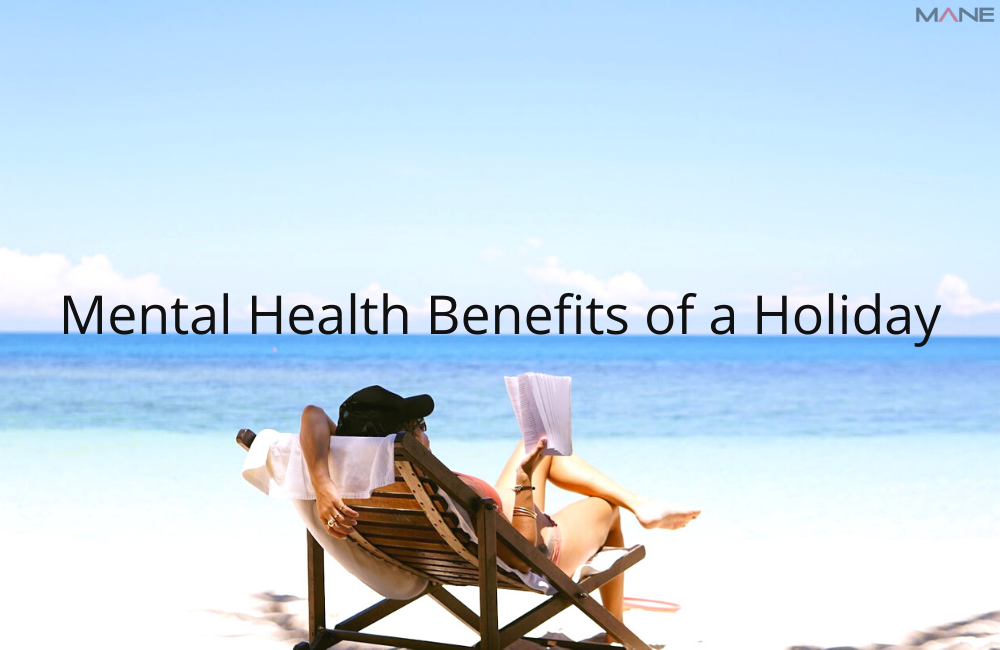Mental Health Benefits of a Holiday
17 Dec, 201910 minsIt’s no secret that time off work is time well spent; relaxation, rejuvenati...

It’s no secret that time off work is time well spent; relaxation, rejuvenation, reinvigoration all helps to keep us feeling our best, both at the office and at home. Regardless of what industry you’re working, whether you’re engaging in the high-flying, sky-soaring life of aerospace & space-based work or you’re keeping things more down to earth with a desk job, it’s not hard to begin overworking yourself.
All work and no play makes Jack a dull boy, so all work and no vacations must make us all incredibly dulled.
This is why, to the surprise of no one, holidays are incredibly important. They don’t just let us relax and unwind, they can truly help us in the long-run with our mental health. These benefits come in many forms and fashions, and although people seldom require a reason to book a flight, consider these points that Complete Holiday Homes has amassed whilst studying the mental health benefits of holidays.

1. Combating Burnout
It may seem obvious, but it’s certainly worth elaborating on how vital time off from work can combat burnout. The topic of which profession experiences the highest level of burnout is still hotly debated, but every spectrum of society can be widely affected. For example, physicians, teachers and social workers all report worrying figures, such as over 50% experiencing severe burnout and even gaining Secondary Traumatic Stress syndrome, whereas untrained workers like those in the fast-food & retail industries frequently highlight how common burnout is, with some reporting a staggering 110% turnover rate a year, suggesting that some roles have to be filled twice a year.
2. Fighting Depression
Harvard, the University of California and the Icahn School of Medicine conducted studies that found surprising results of how holidays affect people biologically. After being away from work for just six days, the researchers discovered that their participants had boosted immune systems and even found that they had lower levels of the proteins that are linked to depressions and even dementia.

3. Helping to Cultivate Hope
Simply put, having a holiday on the horizon helps to expand your mind a little, keeping a carrot dangling in front of you. As soon as you book a holiday, your mind will have something to look forward to, which will make enduring any tough days at work much easier. It can also serve as a pleasant mental getaway, planning out your upcoming vacation as you distance yourself from any stressful situations work might put you in.
4. Staying Active
Exercising has often been described as ‘the cheapest form of therapy’, and although this can be taken a little ‘tongue-in-cheek’ it’s hard to argue with the results. Exercising releases dopamine, norepinephrine & serotonin, the chemicals that regulate your mood. Not all vacations need to be incredibly active, for example, the benefits of being active aren’t only gained from climbing up a mountain, but the fact that you’ll be moving a lot in transit, exploring a new area and engaging in a variety of different activities will help to keep you active; even if you’re simply going back and forth from the beach and the bar.

5. Improving the Important Things
It may be clear to some, yet undervalued by others, but travelling and going on holiday can help to get the creative juices flowing; something that’s especially important for those getting burnt out in front of a desk. Famous writers, including Hemingway and Twain, frequently elaborated on how important they thought travelling was for the mind. Travelling with friends and family can also greatly improve your bonds with them too, which will all-round generally just make life better. A study conducted by the Arizona Department of Health & Human Services even discovered with women a direct connection between marriage satisfaction and the number of holidays spent with their partners.
6. Short Term Breaks
As it turns out, even short breaks can provide a wealth of benefits to mental health including, but certainly not limited to, a reduction in perceived stress, increased rate of mental recovery and even an increase in general well-being. A 2018 study, conducted by a collaboration between the Psychology & Medical Sciences, Sports Sciences, Alpine Medicine & Health Tourism departments at The Tyrolean Private University, studied how a four day weekend affects workers, specifically middle-managers.
Their findings compared stress levels between those staying at home, those going to a hotel and those going on vacation, finding that many enjoyed great mental health benefits for up to 45 days after the vacation ended. This showcases just how important a break can be, even if you think it’s too short to make a difference.


